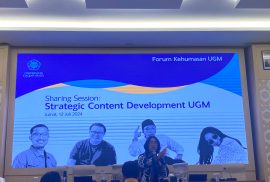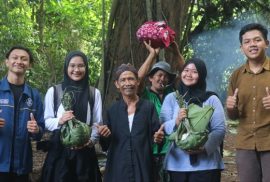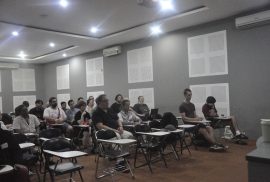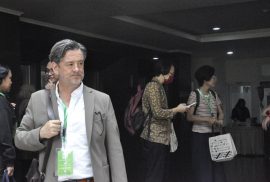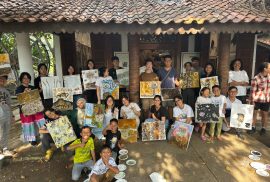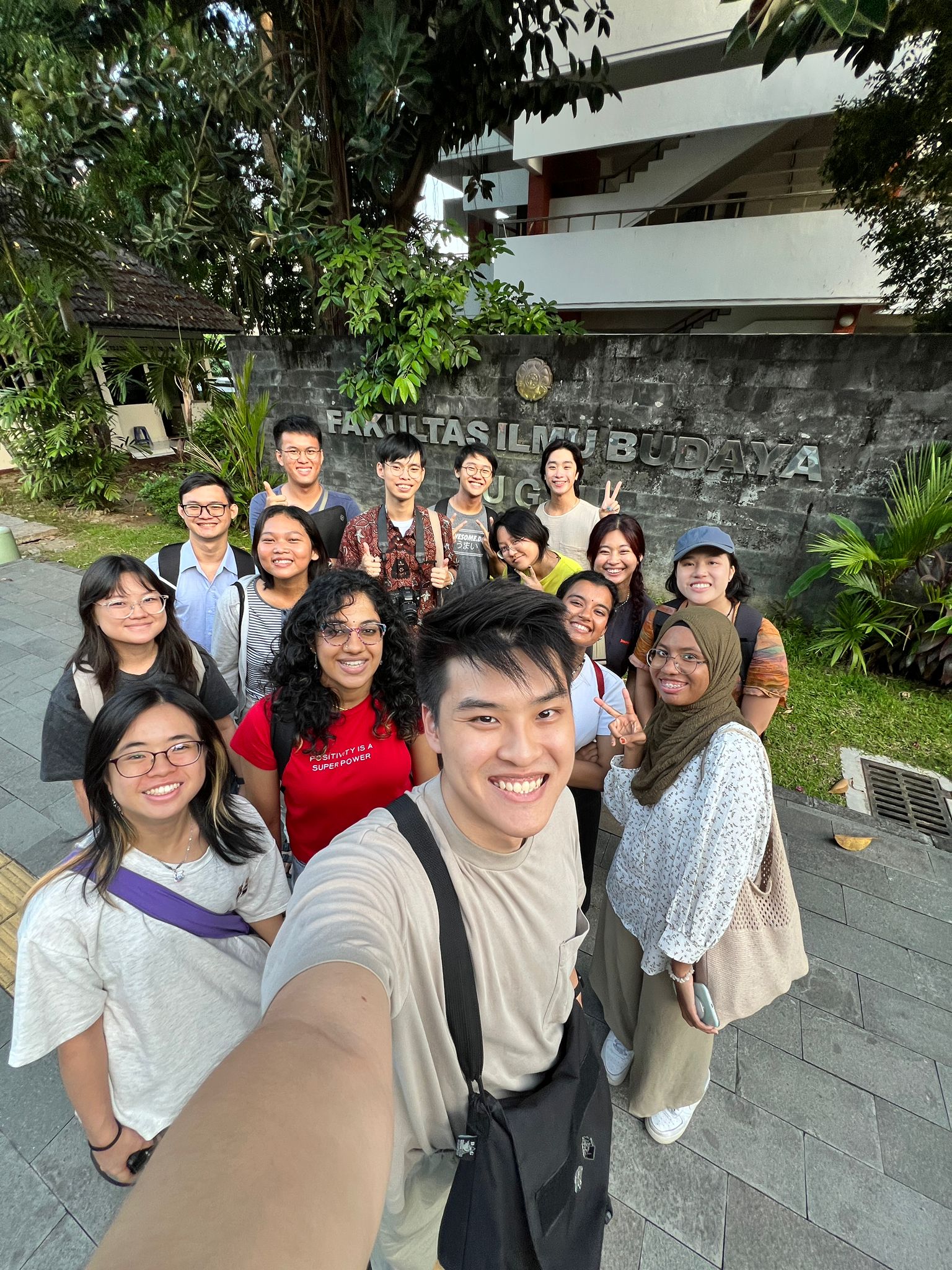Yogyakarta, 12 July 2024 – The Office of Public Relations, News, and Protocol of Universitas Gadjah Mada (UGM) successfully held a sharing session themed “Strategic Content Development of Universitas Gadjah Mada” today. The event which lasted from 12.00 to 16.00 WIB was attended by UGM public relations, news, and protocol staff in Multimedia Room 1, 3rd Floor of the North Wing, UGM Central Building.
The speakers who attended this session included Dr. Tirta Mandira Hudhi, M.B.A., Winda Pratiwi, Farchan Noor Rachman, and Mohamad Ryan Saputra. They provided various insights and strategies in strategic content development for UGM such as recognizing audiences through data interpretation, as well as content planning and development.
Previously, the organizers had invited all relevant staff to participate in this activity, which aims to strengthen the public relations function on campus. The University Secretariat would like to thank all participants for their attention and participation.

